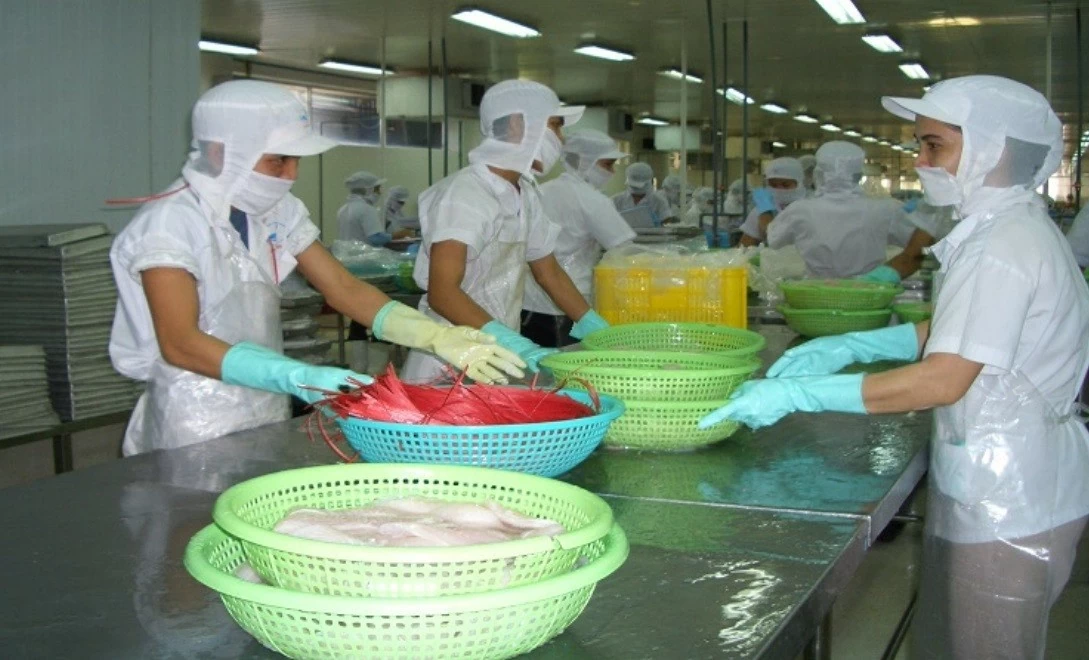
Numerous opportunities for Vietnamese agricultural products in the Halal market
Latest
The Halal market, encompassing Islamic nations, has emerged as a promising frontier for export sectors, particularly in food and agriculture.
With 2.2 billion consumers, this market offers an open door for Vietnam’s agricultural products to enter the global stage.
Exploring untapped potential
Thanks to Vietnam’s robust agricultural production and export capabilities, businesses have successfully met importers’ criteria, yielding positive outcomes. Over the years, the country’s agriculture, forestry, and fisheries sectors have penetrated demanding markets like the United States, Europe, Japan, Australia, South Korea, and, more recently, China.
 |
| With a consumer base of 2.2 billion in Halal markets worldwide, Vietnam’s agricultural sector is seeing significant opportunities for global trade expansion. (Photo: VNA) |
The Prime Minister’s issuance of the project "Strengthening international cooperation to build and develop Vietnam's Halal industry by 2030" underscores the country’s commitment to this promising market. According to the Ministry of Agriculture and Rural Development, Vietnam’s agricultural sector has achieved remarkable growth in recent years. In 2024, the sector’s export turnover is projected to reach 62 billion USD, surpassing the government’s target by 15%. This success reflects the concerted efforts of the entire agricultural system.
Deputy Minister of Agriculture and Rural Development, Mr. Phung Duc Tien, emphasized that while Vietnamese agricultural and aquatic products have gained traction in various markets, tapping into the Halal market is crucial. “This will enable Vietnam’s agricultural products to access diverse market segments, increasing export turnover”, he noted.
Despite challenges such as global political volatility, rising shipping costs, and tightened consumer spending in 2024, Vietnam’s agricultural sector has achieved commendable export milestones by maintaining high-quality standards and unique product characteristics.
Binh Dinh Fishery Joint Stock Company (Bidifisco) serves as a shining example of success in the Halal market. According to its Director, Ms. Cao Thi Kim Lan, the company diversified its markets following the impact of the EU’s IUU yellow card on tuna exports. By shifting focus to Halal markets, Bidifisco has seen a steady increase in orders.
Bidifisco’s products meet Halal standards and food safety certifications, allowing the company to expand exports to the Middle East, particularly the United Arab Emirates (UAE). Ms. Lan emphasized that obtaining Halal certification is a prerequisite for entering the Halal market. With Muslims accounting for one-third of the global population, they are willing to pay a premium for green, clean, Halal-certified products.
Meeting Halal standards
Agricultural experts assert that most Vietnamese agricultural products have the potential to penetrate Halal markets, provided they meet specific requirements. Products must not contain any ingredients prohibited under Islamic law, nor should they come into contact with forbidden materials or substances during production. Addressing these issues is a priority for Vietnamese businesses aiming for sustainable exports.
Ms. To Thi Tuong Lan, Deputy Secretary-General of the Vietnam Association of Seafood Exporters and Producers, stated that seafood processors and exporters are working to meet Halal market criteria to introduce their products to these markets. However, each Halal market has unique requirements, necessitating thorough preparation by exporters.
Mr. Firdauz Bin Othman, Consul General of Malaysia in Ho Chi Minh City, highlighted the global acceptance of Halal standards, particularly in food safety. This has fueled the growth of Halal markets, driven by the increasing Muslim population and rising demand for Halal-certified products. He stressed that this presents significant opportunities for countries like Vietnam to proactively access the Halal market.
Ms. Faiza Shafqat, Commercial and Investment Counselor at the Embassy of Pakistan in Vietnam, shared that with a population of over 200 million, 90% of whom are Muslim, Pakistan has a substantial demand for Halal food, especially meat products. The country imports 2.7 billion USD worth of chicken annually.
To export to Pakistan, Vietnamese businesses must obtain Halal certification from the country, with specific standards outlined on the Embassy’s website. Pakistani consumers prioritize Halal logos on daily products as a basic standard for their food.
One major challenge for Vietnamese exporters lies in the lack of unified Halal standards across Islamic nations. Each country has its own set of requirements, issuing certifications at national or regional levels. To succeed, Vietnamese businesses must thoroughly research target markets before planning production and exports.
By addressing these challenges and leveraging its strengths, Vietnam’s agricultural sector is well-positioned to capitalize on the vast potential of the Halal market.









